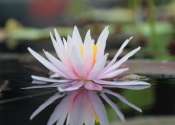Research team finds effect of odor on helpfulness in rats
Despite their reputation, rats are surprisingly sociable and actually regularly help each other out with tasks. Researchers at the Universities of Göttingen, Bern and St Andrews have now shown that a rat only has to smell ...









